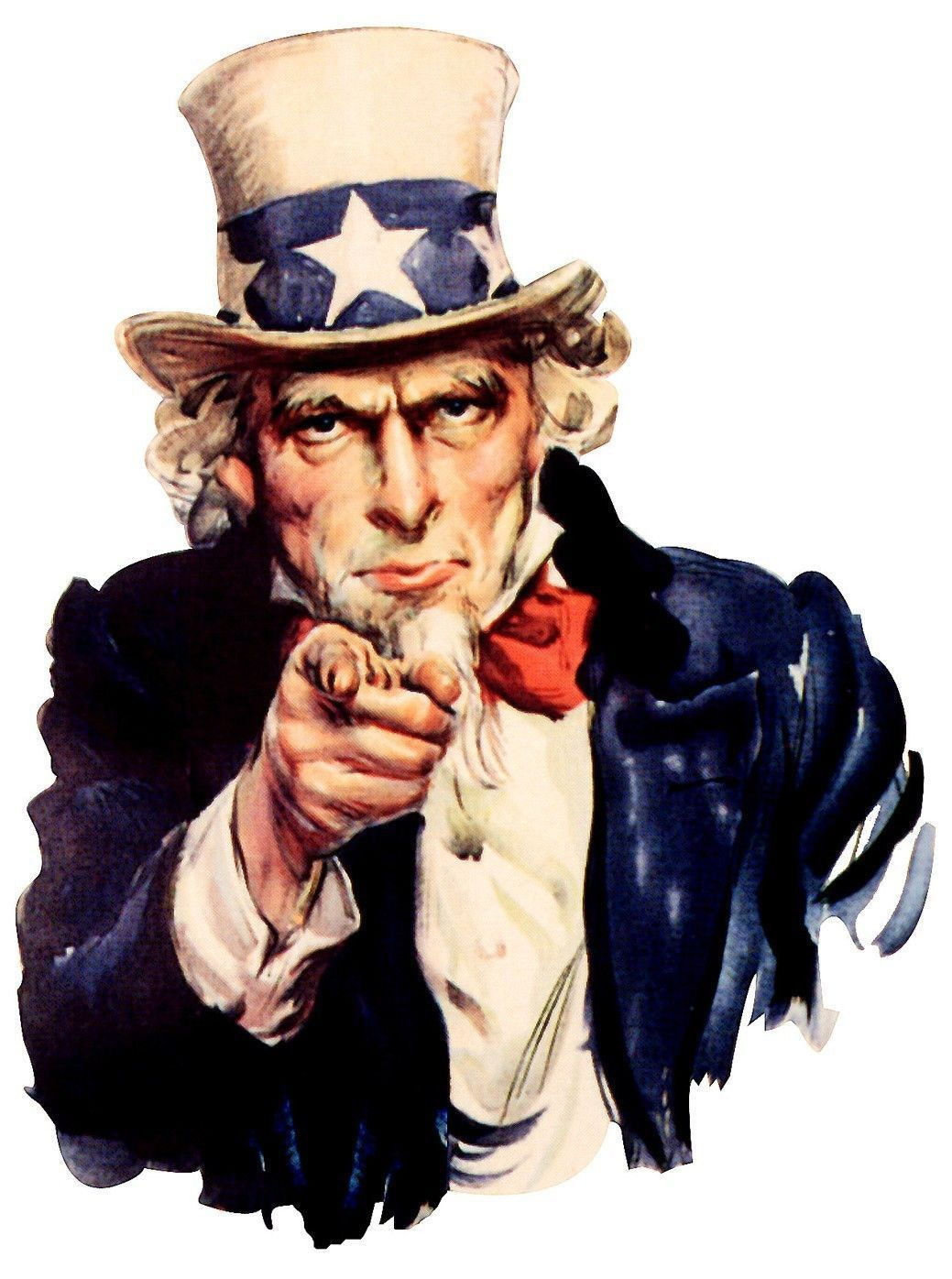Uncle Sam wants you
But what does he know?
Whenever I teach American history, I ask my students to consider which of America’s wars they would have volunteered to fight in. Would they have taken arms against Britain in the American Revolution? Would they have joined Henry Clay and the war hawks of 1812, again against Britain? Would they have enlisted for the invasion of Mexico in 1846?
I teach in Texas, so I ask my students if they would have volunteered to fight for the Confederacy in 1861. Would their umbrage at Spain for that country’s treatment of Cuba have been so great as to prompt their joining Theodore Roosevelt’s Rough Riders? Would they have rallied to Woodrow Wilson’s call to make the world safe for democracy? They doubtless would have been infuriated by Japan’s attack on Pearl Harbor, but would they have rushed to their local army recruiting offices? Would they have been persuaded by the domino theory to fight communists in Korea and Vietnam?
Would they have struck a blow for George H. W. Bush’s “new world order” and fought in Kuwait? Would they have gone after Osama bin Laden in Afghanistan? Saddam Hussein in Iraq?
And the final question: Would they be willing to risk their lives to defend Ukraine from Russia?
I sketch these scenarios for two reasons. First, to make history real for them. Every one of these wars was fought by Americans of roughly their age. Would they have been among the fighters had they lived back then?
Second, to remind them that in a democracy, policy decisions are supposed to reflect the will of the people. No government decision is more serious than the decision for war. And the best way to gauge seriousness is to consider whether one would be willing to back it with one’s life.
I point out that it was almost never the case in American history that those people who decided for war–members of Congress until 1941, presidents since then–had any grave personal stake in the decisions. The only member of Congress to die in battle was Edward Baker, a senator from Oregon, who was killed at Ball’s Bluff during the Civil War. No president has died in battle. At some basic level, this seems wrong. The people who are asked to do the dying ought to be consulted in the decisions that make the dying happen.
Louis Ludlow thought so. A Democratic senator from Indiana, Ludlow in the 1930s proposed an amendment to the Constitution requiring a vote of the American people in any decision for war. Ludlow’s amendment made exception for invasions of American territory, but otherwise advocates of war would have to win the support of a majority of voters in a national referendum, including presumably some of those who would be placed in the line of fire.
The amendment was favored by isolationists of the era, who believed that America had been suckered into World War I by bankers, arms-makers and the British. It was opposed by Franklin Roosevelt, who didn’t want his hands tied in dealing with the fascists of Europe and Asia.
Ludlow’s amendment never came close to adoption, but the debate it provoked reminded Americans who held the power of life and death over their young men. And it wasn’t the young men themselves or their mothers and fathers. It was government officials in Washington.
The last part of my classroom exercise is to grade the decisions of the warmakers. On a scale of 90 to 100 being an A, 80 to 90 a B, and so on, my students generally conclude that the warmakers flunked. The decisions for war were good ones in the cases of the American Revolution and World War II. The decisions were bad in the War of 1812, the Mexican War, the Civil War (judged from the side of Texas), the Spanish-American War, Vietnam, Afghanistan and Iraq. In the maybe category were World War I, Korea and the Gulf War.
Foes of the Ludlow amendment asserted that the people weren’t knowledgeable enough to make good decisions on a subject as fraught as war.
But could they have done worse than those who did make the decisions?


This is a very cool concept. I couldn't imagine how the War in Afghanistan and Iraq would have done had we had a national vote.
Another phenomenal piece, Prof. Brands. As a fellow educator, I truly enjoy constantly learning from you.